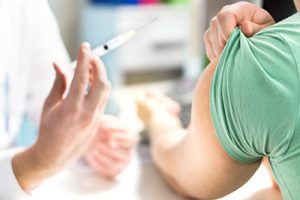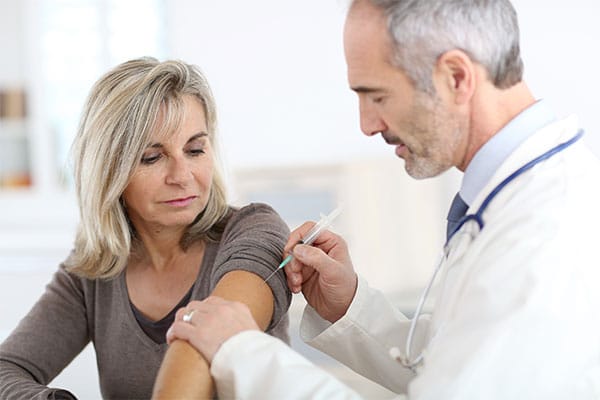Every woman should have screenings and vaccinations when nearing menopause. The tests help you deal with challenges that come with the end of your reproductive cycle.
Have you ever wondered how to get through menopause? What about the symptoms and health complications it brings? Worry no more! This article will enlighten you on some of the vaccines and health screenings you need to take to keep your health in check.
Menopause – A Time Of Change
Menopause is a natural process described as the ending of the menstrual cycle due to aging. It begins when the ovaries stop producing estrogen, causing the reproductive system to shut down. Some women experience this change in their early 40s, however, the normal range is between the ages of 45 and 55.
Some women experience this condition early because of a hysterectomy, oophorectomy, and premature ovarian failure surgeries.
What Are the Symptoms?
Some women experience no symptoms at all apart from having irregular periods for several months before actual menopause. Every woman is unique and so is her menopause and its symptoms.
Common Symptoms
- Experiencing hot flashes during the day and night
- Mood swings, trouble sleeping and vaginal dryness
- Bladder-control difficulties
- Fatigue, headache, irritability, and joint and muscle pain
- Heart palpitations
- Reduced sex drive and/or discomfort during sex
Medications used in relieving some of these symptoms may end up increasing the risk of health problems like breast cancer. Speak to a doctor to learn about the potential dangers of taking medications for menopausal symptoms.
Which Health Screening Should I Undergo?

Cardiovascular Screenings
Heart disease is the leading cause of death in women. Prevention can come through exercise and a proper diet, however, even with healthy choices in place, getting cholesterol and blood pressure tests may help indicate early signs. As estrogen levels decrease with menopause, cholesterol levels tend to increase. Thus, it becomes more important to get checked more often.
Bone-Density Testing
Osteoporosis is a condition that weakens the bones, increasing chances of fractures and leading to women’s loss of height. There is a direct relationship between the lack of estrogen after menopause and the contribution to osteoporosis. As women tend to lose bone density much faster during and after menopause, a bone-density test is advisable.
Gene Test for Ovarian and Breast Cancer
Check for mutations taking place in genes to determine if you are at risk of getting breast or ovarian cancer. If you have had cancer or have family history of it, you ought to have this test.
Pelvic Exam
The pelvic exam checks the state of the ovaries, rectum, and uterus and how well in place the pelvic organs are. Because the risk of cancer increases with age, having regular pelvic exams may help with early detection of certain cancers in both menopausal and postmenopausal women.
Hormone Test
This test is vital. It checks if a woman is premenopausal or menopausal, and depending on the symptoms, whether natural remedies, hormone-replacement therapy or further treatment options is required to properly balance hormone fluctuations.
HPV Test
Though many may think HPV is not a risk later in life, this test can detect HPV, which is It is true that HPV peaks in young women around age and declines in the late 30s and more so beyond that, but there is sometimes a second peak around the age of menopause. A study released early in 2013 of women 35 to 60 years old found that HPV in women at or after menopause may represent an infection acquired years ago.
Which Vaccines Should I Take?

Influenza
— this annual shot is essential for all aging women who want to reduce the risk of the flu.
Tetanus-Diphtheria (TD)
— after childhood immunization, one should receive the TD booster every ten years. Age 50 is an excellent time to get the booster as it prevents the reoccurrence of whooping cough.
Pneumonia
— patients with diseases such as HIV, diabetes and sickle cell disease should receive this vaccination, as well as anyone over the age of 65.
Chickenpox
— if you have never had chickenpox, a booster vaccine and a two-dose series are available.
Hepatitis A, Hepatitis B, and Meningitis
— for premenopausal and postmenopausal women traveling to exotic places, these vaccines are essential. A referral to a travel clinic for more recommendations will be helpful.





